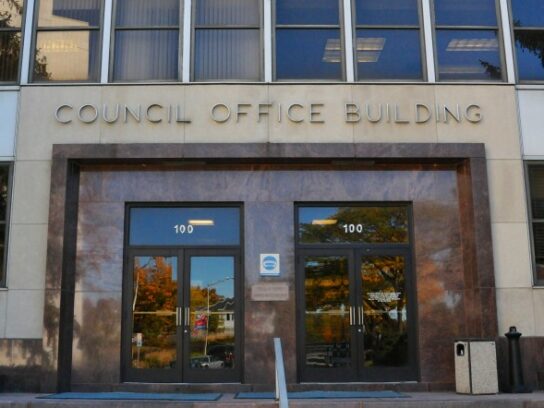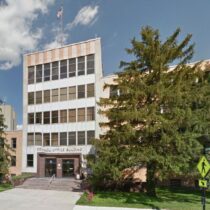
The Montgomery County Council is set to consider a two million dollar grant to the Montgomery County Respite Center – a center that assists arriving migrants. The center’s federal funding will end on Dec. 31, which could result in an “abrupt” stop in services that help thousands of people each year.
The potential county funding would help SAMU First Response – a humanitarian aid organization – continue operating the center from January to July of 2024.
In April of 2022, Texas and Arizona state governments began bussing migrants from their states to the Washington D.C. region as a protest of federal immigration policies, according to a county staff report.
As a reaction to this influx of migrants, SAMU First Response opened The Montgomery County Respite Center in June of 2022 – the first formal facility in the region. The center offers short-term shelter, medical care and food for arriving migrants.
County Councilmember Kate Stewart said this bussing system “was and continues to be a crisis,” during a Friday joint committee meeting on the grant allocation.
“Many of these people had literally traveled hundreds and hundreds of miles, were put on a bus and sent here from Texas and other states, with no rest or medical care,” Stewart said.
The center serves as an example of how the county stepped up during the crisis, Stewart said.
SAMU’s work to help migrants is funded through the FEMA Emergency Food and Shelter Program – funding that will run out at the end of 2023. This is because FEMA changed the emergency grant program in mid-2023. The change made SAMU and their services in Montgomery County excluded from the grant program, according to county staff.
The county government has not directly funded the center prior to these discussions, but has provided “overhead support”.
County staff wrote in their report that services stopping at this center would negatively impact county non-profits, community-based organizations and homeless services which would have to manage an influx of people in need.
The center has served 4,121 people as of Nov. 10 mostly from Venezuela, Colombia and Peru, according to the staff report. The migrants stay for usually three to five days, but can stay up to 30 days.
Assistant Chief Administrative Officer Earl Stoddard said that while the county has no control over the influx of migrants from the border states, the county has a responsibility to act.
“We have to manage the situation that we are faced with, and that we wanted to do it in the most humane reasonable way for the county for the people arriving,” Stoddard said.
Council Vice President Andrew Friedson said that the services provided by the respite center are necessary and a “moral obligation”. However, he is concerned that the county is taking up what should be a federal responsibility.
“We can only pick up so much of the federal failure without them picking up the tab for what that failure costs,” Friedson said. “It’s not financial costs, it’s really human costs which have financial costs”.
The county is looking at this funding as a emergency crisis response, Stoddard said, instead of a long-term sustainment of these services. The county is hoping that SAMU will once again receive federal funding for the program in 2024.
The full council will hear this issue on Dec. 12.


Comments are closed.